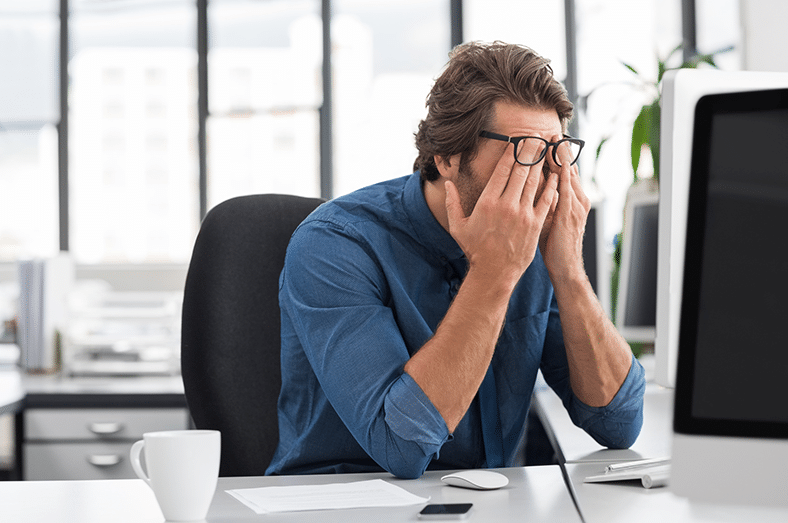Stress and Sleep Apnea

When the world suddenly turns upside down, it’s no surprise that people feel stressed out and begin losing sleep. Change is stressful. So is worrying about the ‘what ifs’ that come along with the coronavirus situation. Uncertainty is even more stressful. So, if the coronavirus situation is stressing you out and causing you sleepless nights, it’s no wonder, and you’re not alone. But if the sleep problems persist, you’ve got a bigger problem on your hands that you may need professional help to handle.
How well we sleep is often a good indicator of our overall health. Too many of us already don’t get enough sleep due to excess screen time and poor sleep habits, among others. Left unmanaged, stress can lead to bigger health problems including sleep apnea. Think connecting the two is a bit of a stretch? Consider some of the risk factors for sleep apnea:
- Unhealthy lifestyle
- Environmental factors
- Age, family history, and genetics
“Healthy lifestyle changes can decrease your risk for developing sleep apnea.”
– National Institutes of Health (NIH.gov)
Can Stress Cause Sleep Apnea?
So, can stress cause sleep apnea? Yes, but only indirectly. When you’re chronically stressed, you’re at risk for a wide range of health problems. Let’s look at a few:
- Stress is linked with sleep apnea because it’s also a risk factor for health conditions associated with obstructive sleep apnea, like obesity and diabetes.
- Chronic stress raises risk for developing obesity, diabetes, heart disease, Alzheimer’s, stroke, depression, gastrointestinal issues, and even asthma!
- Sleep apnea is linked to an increased risk of heart disease, stroke, obesity, diabetes, glaucoma, and even a higher risk of accidents, thus closing the vicious circle.
Why Stress Management Matters
Stress is not just something we feel – it’s also the body’s built-in physiologic response to danger. When stress arises, our ‘fight or flight’ instinct kicks in. Cortisol and adrenaline hormones flood into the bloodstream, constricting blood vessels, and raising blood pressure and pulse rates. Over time, these physiological changes can begin to adversely affect our general health.
If you’re having trouble sleeping, feel constantly tired after a full night of sleep, or have a history of snoring, you might be struggling with a sleep disorder like sleep apnea.
“Undiagnosed or untreated sleep apnea can lead to serious complications such as heart attack, glaucoma, diabetes, cancer, and cognitive and behavioral disorders.”
– National Institutes of Health (NIH.gov)
If sleep apnea is impacting your life, make the lifestyle changes that improve your chances of quality sleep and you’ll also be improving your health. Regular exercise, maintaining a consistent sleep schedule, and avoiding excess caffeine and alcohol can all help. There is also a range of treatments available, including CPAP machines and other sleep products. For more information about CPAP machines and treating sleep apnea, visit us at Valley Sleep Therapy or call us at (480) 361-0124.
Browse our online CPAP supplies store or contact us for more information today at (480) 361-0124 or info@valleysleeptherapy.com.
[Disclaimer]*This post contains general information about medical conditions and potential treatments. It is not medical advice. If you have any medical questions, please consult your doctor.

